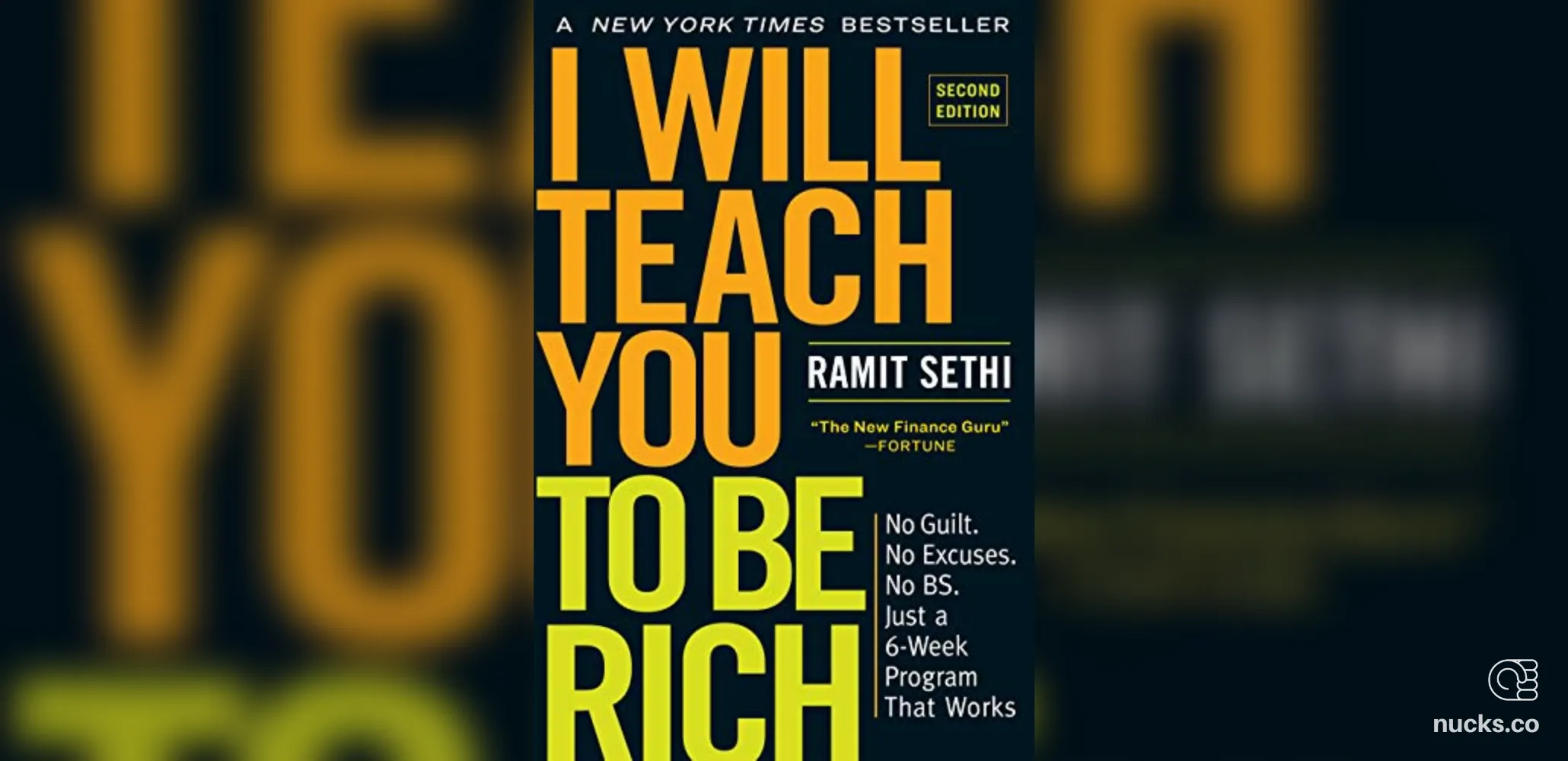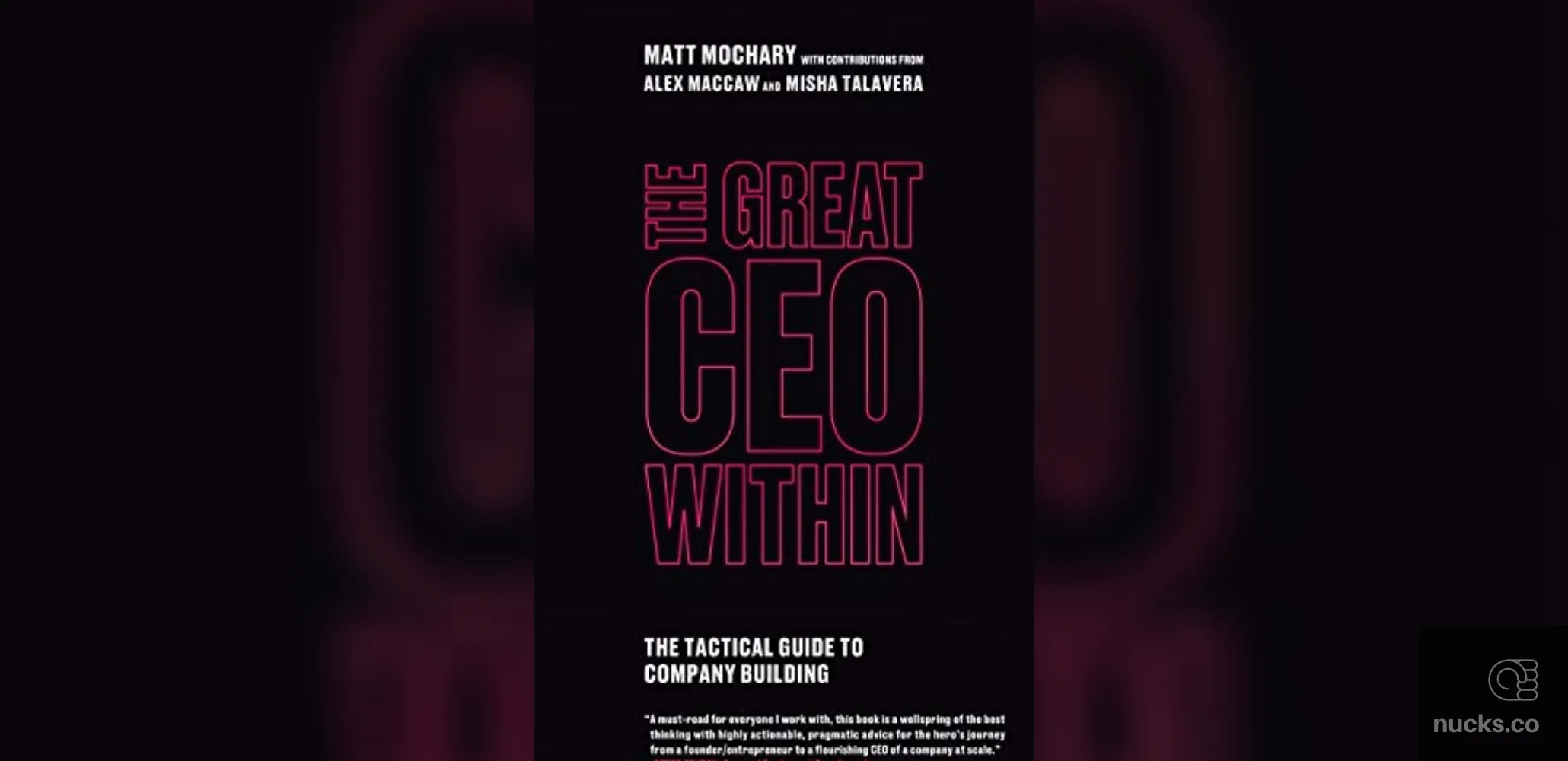I Will Teach You to Be Rich by Ramit Sethi
15 min read

Have other book notes like this sent directly to your inbox 📥
Sign up for my newsletter
Receive quality content on diverse topics. The premium edition, for free. 👊🏽
More book notes from Nucks

The Great CEO Within by Matt Mochary
Starting a company is hard. Even the best founders struggle to build great companies. This book is a great place to learn how to improve as a leader & CEO.
December 27th, 2019 · 6 min read

Alibaba: The House That Jack Ma Built by Duncan Clark
Alibaba has always been a company that I did not understand. I've wondered how they became such a powerhouse. Reading this book gave me a better understanding of the company's innovations.
August 10th, 2019 · 11 min read